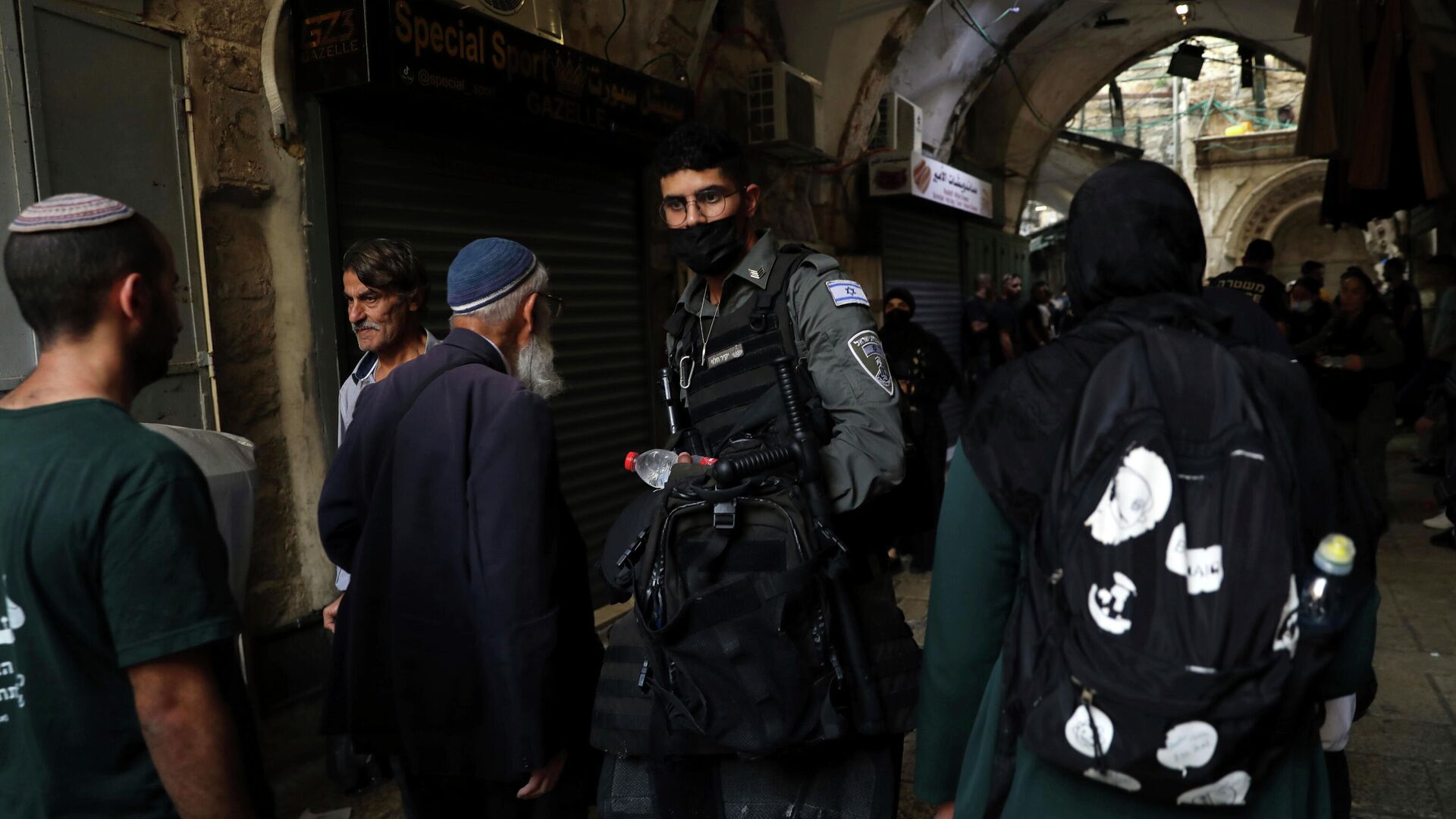How Legal Are Israeli Police Spying Methods?
05:19 GMT 27.01.2022 (Updated: 17:25 GMT 15.01.2023)

© AP Photo / Mahmoud Illean
Subscribe
According to Israeli legislation, the police is allowed to listen in to conversations of citizens to investigate or prevent serious crimes. There are some in Israel, who object to this practice as it "infringes human rights", but a local expert says nothing is black and white.
Emotions are still brewing in Israel, a week after the Calcalist news website revealed that the country's police were using NSO's Pegasus spyware system to hack the phones of Israeli citizens.
According to that report, the police have been snooping into the phones of private citizens for years, and many of the people who have been targeted were law-abiding civilians. They included mayors, leaders of political protests and former government employees.
How Legal is That?
Many in Israel have accused the police of resorting to illicit practices, but Adv. Amir Cahane, a researcher at the Israel Democracy Institute, says nothing here is black-and-white.
"It is a matter of what use the police made from the information they extracted. If it was only for listening to conversations, then they might have stretched a bit the interpretation of the law. If they used the spyware to extract the info from the phone [such as photos, chats, videos, location data etc], then it might be considered as illegal," he reasons.
Israeli experts suspect that it was highly unlikely that the police would fork out a pretty penny on a programme if their sole aim was to record conversations, especially as the market is flooded with cheaper options.
This is why some believe Pegasus was probably used to extract the entire information from the phones of the people under surveillance and the catch is that they used a hole in the Israeli law that allowed them to do so.
Israel's Wiretap Law stipulates that listening to conversations or communications is allowed under certain conditions. But it doesn't include any clauses that ban hacking into a person's phone to extract all of its content, and this is something that's regarded as problematic.
Another hole in the system is the judiciary involvement. The law obliges the police to submit an official request to a district or a magistrate court for a warrant, and only once it is granted, the authorities are allowed to listen in to conversations.
In reality, however, the current oversight is highly ineffective; judges very often lack the necessary knowledge to understand what software and equipment is needed for a certain mission. And this leads to a situation where they rubber stamp almost every police request that's submitted to them.
Crime and Punishment?
Will the Israeli police be held accountable for their actions? Israel's public has already been punishing it with its distrust, with only 55 percent believing in the system and 19 percent having little faith in it.
As for the police's punishment by the law, Cahane doubts it will happen unless "they discover particular cases of officers", who could be held accountable. But what he does believe in is that this scandal may lead to an overhaul in the entire system that has been begging for a change for years.
"To prevent such instances [where the police exceeds its powers - ed.] Israel has a number of gatekeepers. One of them is the Attorney General's office. Another one is the periodical reports of the police themselves. There is a judiciary review and a parliamentary committee", Cahane says. "But what the system is lacking is a surveillance oversight commission, a special body that can oversee the use of secret measures."
Things might now start changing. Following the revelation of the scandal, Omer Bar Lev, Israel's Minister of Public Security, has said he would be looking into the current Israeli law to see what changes have to be made for it to fit the 21st century.
He also stressed that the body he represents will come up with a new set of rules if needed, after they agree on them with the Ministry of Justice.
"In the US, after the scandal of Edward Snowden revelations, there have been some reforms. So there is a change it will happen here too. Right now, it is too early to tell," says Cahane.


